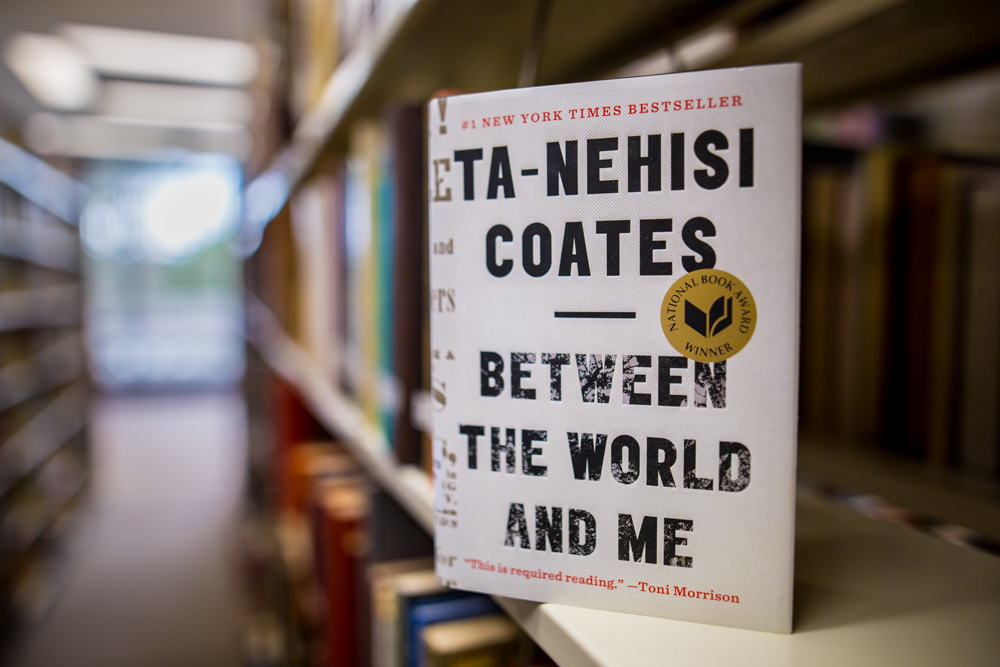Between the World and Me by Ta-Nehisi Coates (Random House, 2015) is the 2017-18 Common Read selection for Eastern Mennonite University (EMU).
Each year since 2013, faculty, staff, and students select a book that relates to contemporary situations and which will generate conversation around important themes. Most of the finalists for this year “connected to themes of race and justice, an indicator of what’s in the general zeitgeist in our country and on our minds at EMU,” said professor and Intellectual Life Committee member Kirsten Beachy.
In the series of letters to his teenage son about his life experiences as an African American male, Coates challenges readers to examine assumptions about race, history, education, faith and social change.
Common Read activities at EMU throughout the year will include conversations about race, diversity and identity, including Anabaptist identity.
Five Thursday noon reading circles, beginning Sept. 14 in the East Dining Room and facilitated by Professor Deanna Durham, will jump-start the discussion. Each hour-long conversation will focus on consecutive sections of the book. A second round of reading circles will run for five weeks starting Wednesday, Nov. 1 from 5-6 p.m. in Northlawn Great Lounge.
Social justice activist and civil rights attorney Fania Davis will contribute to those discussions in April when she spends a week on campus as a Woodrow Wilson Visiting Fellow, sponsored by the Council for Independent Colleges.
Toni Morrison calls Between the World and Me “required reading,” and wrote, “I’ve been wondering who might fill the intellectual void that plagued me after James Baldwin died. Clearly it is Ta-Nehisi Coates. The language of Between the World and Me, like Coates’s journey, is visceral, eloquent, and beautifully redemptive. And its examination of the hazards and hopes of black male life is as profound as it is revelatory.”
The book was chosen long before the August events in Charlottesville that threatened the nation’s sense of inclusiveness and angered many in EMU’s social justice-oriented community. But Beachy thinks that there is plenty in the book to challenge even this sympathetic, academic culture, from conceptions of whiteness that Coates says is at the heart of racism, to his response to the reverence for non violence in civil rights action in a world “secured and ruled by savage means.”
Coates also rejects the “magic” of religious faith: “The spirit and soul are the body and brain, which are destructible — that is precisely why they are so precious,” he writes. However, in their introduction to the collection of original essays Between the World of Ta-Nehisi Coates and Christianity (Wipf & Stock: forthcoming), professors Peter Dula and David Evans note a Tweet by Coates in which he said, “Best thing about #BetweenTheWorldAndMe is watching Christians engage the work. Serious learning experience for me.” Their book, they say, “can be read as a response” to Coates’ insights.
“The value of Between the World and Me for all of us in this campus community is that it invites us to see through the eyes of another person as he honestly relates to his son his own, specific experience of what it means to live in a black body in America,” said Beachy.
